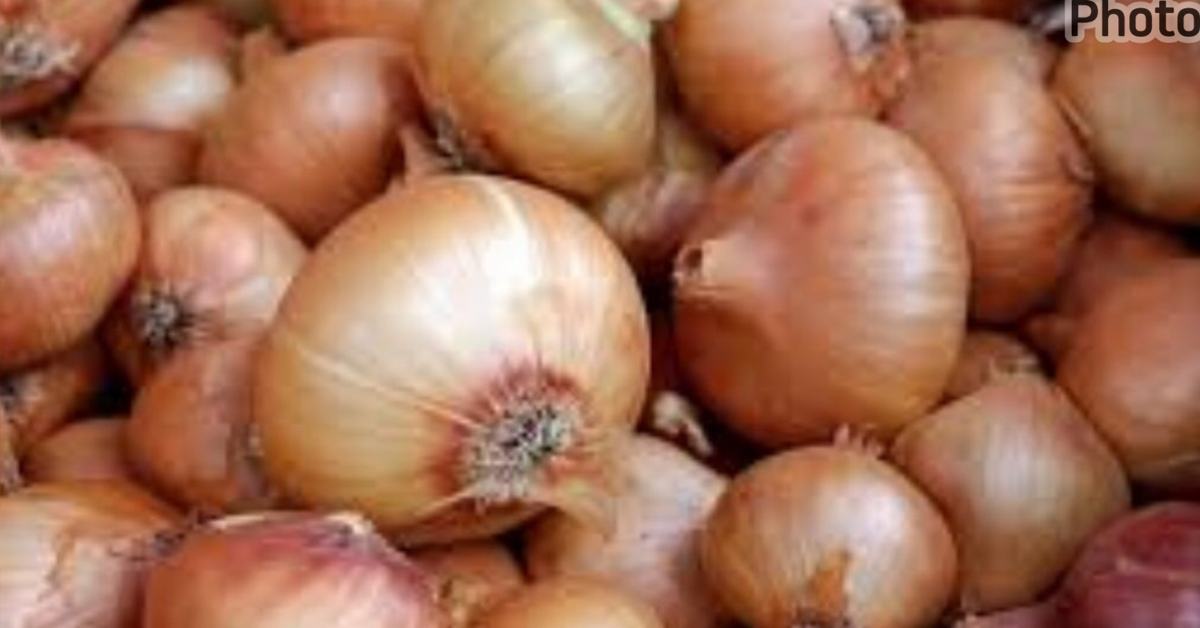The price of onions has soured in the market due to the shortages of onions in the country. The product is now sold at NLe25 for three small sizes of onions.
The country is facing a dire situation as the scarcity of onions in the market reaches alarming levels, leaving households to cope with rising prices and the challenge of adapting their meals to the new reality.
This shortage has led to eliminating onions from their meals altogether, considering it a “preserve for the elite” due to its exorbitant cost. On the other hand, others are embracing innovative cooking techniques to work around the scarcity and ensure meals are still prepared.
Residents in Freetown like Mary Mansaray, a mother of three, said the increase in onion prices is affecting her household greatly.
Just a few months ago, three to four medium-sized locally grown onions were sold at Le10, but now, three very small-sized ones, almost on the brink of rotting, are sold at Le25.
This massive price hike is making the staple vegetable unaffordable for many households. As a result, some are opting to use garlic as a substitute, considering it a healthier alternative and more cost-effective option.
The shortage of onions in Sierra Leone has been exacerbated by various factors, including low local production due to the high cost of production and reduced imports from neighboring Guinea.
The traders at Lumely market, like Josephine Kaningo, are struggling to stock onions due to their unavailability and the significantly increased cost.
“About a month ago we were buying a bag of onion for Le800, currently we are getting the same at Le1,500, and it is not even available in the country,” she said.
Fatmata Kamara, who also sells onions, has seen the price of a bag of onions increase. If she doesn’t increase the price per single onion, she won’t get much profit. She said that the situation was very dire due to the shortage. “The onions are not there at all. I went to buy a bag to come and be selling, but I didn’t get some the onions are not there,” Kamara said.
The global onion shortage has far-reaching implications, affecting not only Sierra Leone but also countries worldwide. According to a Bloomberg report, onion prices continue to rise, leading to inflation and impacting the availability and prices of other vegetables and fruits. Countries like Morocco, Turkey, and Kazakhstan have taken action to secure onion supplies, but the overall situation remains challenging.
The scarcity of onions, which are a staple in Sierra Leonean households and integral to numerous recipes, is forcing many citizens to rethink their dietary choices. With onion prices skyrocketing, the world’s second-most consumed vegetable is becoming inaccessible to a significant portion of the population. This has prompted discussions about the need for the government and partners to support local farmers to boost domestic production and reduce the country’s dependency on expensive imports.
Former Minister of Agriculture Forestry and Food Security, Professor Monty Jones, highlighted the staggering amount the government spends on importing onions—about fifteen million dollars ($15m).
He advocated for increased support for farmers to cultivate onions and other essential commodities to meet market demand.
Implementing irrigation projects was suggested as a viable solution to address the challenges posed by seasonal variations and climatic conditions.
The current rainy season is cited as a contributing factor to the hike in onion prices. Onion crops do best from October to November when rainfall is minimal.
Farmers like Yahaya Conteh in Waterloo express the difficulties they face in cultivating onions due to the waterlogged land, which doesn’t favor onion growth. Additionally, onion farmers struggle with post-harvest preservation, requiring proper ventilation to prevent spoilage.
Amid the onion shortage, some farmers have shifted to cultivating other crops that are more lucrative and less demanding. This shift in focus may lead to potential changes in the agricultural landscape and diversification of crops grown in Sierra Leone.
As Sierra Leone remains a donor-driven economy, global shortages, and market price fluctuations have significant effects on the cost of essential commodities within the country. The challenges posed by the onion shortage underscore the need for strategic planning and investment in the agricultural sector to foster self-sufficiency and reduce dependency on imports.
In conclusion, Sierra Leoneans are grappling with the severe effects of the onion shortage, which has led to skyrocketing prices and impacted the daily lives of citizens. The situation has pushed some households to forgo onions entirely, while others have resorted to creative solutions to adapt their cooking. The government and stakeholders must address the underlying issues and support local farmers to boost production and mitigate the impact of future commodity shortages.


 Post a comment
Post a comment









